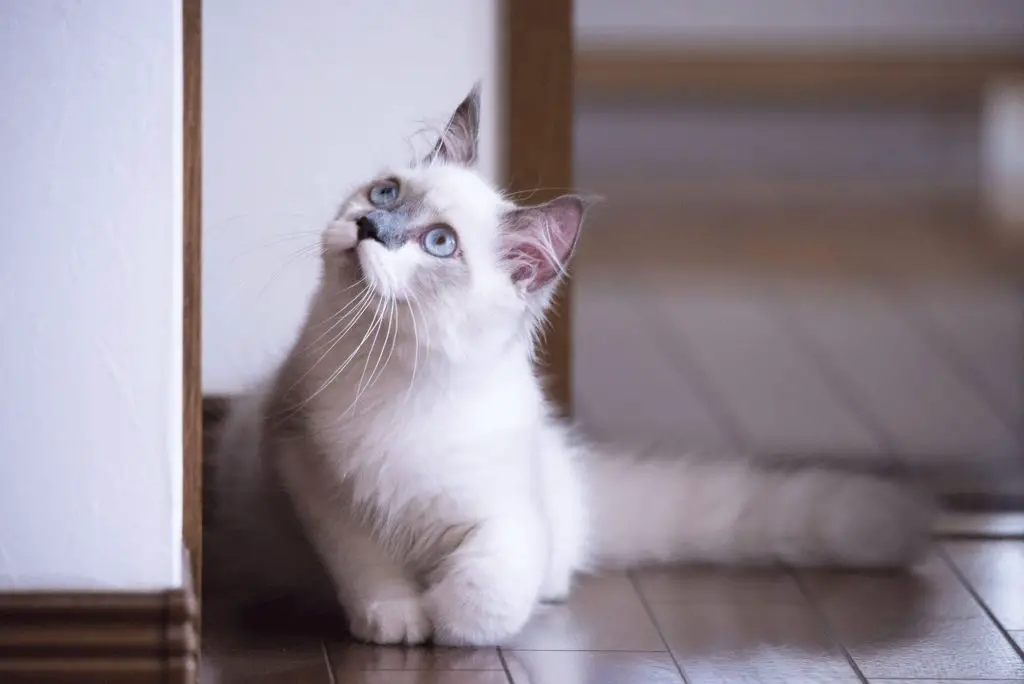Without a doubt, Ragdolls are a special breed that have been selectively bred for their beautiful appearance and incredible personality. But as with any purebred cat, that comes with a higher risk of certain genetic disorders. Don’t fret so fast, though, as there are a lot of reasons why you might want to do some genetic testing on your Ragdoll, and not all of it is to detect worrisome genes that could lead to heath issues down the line.
This guide will show you all of the important types of genetic tests you’ll need to know as a Ragdoll owner. After all, Ragdolls are undoubtedly special, right down to their genes!
Genetic Tests for Hereditary Disease in Ragdolls
A hereditary disease is a disease or disorder that is passed down genetically. Ragdoll parents with defective genes can pass them down to their litters, which is why breeders take extra precautions in avoiding breeding cats that have positive tests for any of these genetic disorders.
Hypertrophic Cardiomyopathy Testing
Hypertrophic Cardiomyopathy (HCM) is a disorder where the heart muscle thickens over time, making it harder and harder for it to pump blood throughout the body. Compared to all the genetic disorders in Ragdolls, HCM is one of the most prevalent and should definitely be tested for in your Ragdoll.
Breeders will sometimes test kittens before owners take them home. However, if your breeder did not get the HCM test done for your Ragdoll you should definitely get it done yourself.
The earlier HCM is detected, the better. There are some ways to treat HCM, although it cannot be fully cured.
Another thing to note is that even if your Ragdoll tests positive for the genes that can cause HCM it doesn’t necessarily mean they will. The genetic test simply indicates that the Ragdoll is more likely to develop the disease, not a sure indicator that they actually will.
Polycystic Kidney Disease (PKD) Testing
Polycystic Kidney Disease is where sack-like pockets filled with air or fluid (called cysts) grow on the kidneys. Overtime this can lead to kidney damage or failure, so it’s good to catch this one early as well.
Again, if your breeder did not get the PKD test done on your Ragdoll it might be a good idea for you to schedule one with your vet. Although PKD is not as prevalent in Ragdolls as it is in other breeds such as Persians and Exotic Shorthairs, detecting it early is always vital in treatment.
Ragdoll Breed Confirmation Testing
If you’re getting your Ragdoll from a breeder then it’s likely you don’t ever have to worry about obtaining confirmation that your Ragdoll kitten is indeed a Ragdoll. But if you adopt or obtain your Ragdoll in any other way then it might not be so clear whether your cat is a purebred Ragdoll.
Although genetic testing isn’t a fully surefire way to confirm whether your cat is a Ragdoll, it can get you pretty close. In breed confirmation testing, your cat’s genetic profile will be compared to that of a database of Ragdoll cat genetic profiles to see if your cat’s fits into any one of the lineages. Close matches to one or several Ragdolls in the database could indicate that your cat is a Ragdoll, but there is currently no way to confirm this with 100% accuracy.
The genetic test will also determine your cat’s racial origin, or the area of the world they originated from. Many cat breeds have general origin areas that are seen in every member of the breed, so tests that come back with racial origin outside these territories will most likely point to the cat not being a purebred.
At the end of the day, determining whether your cat is truly a Ragdoll is going to be a combination of examining their physical characteristics, personality and genetic heritage tests.














